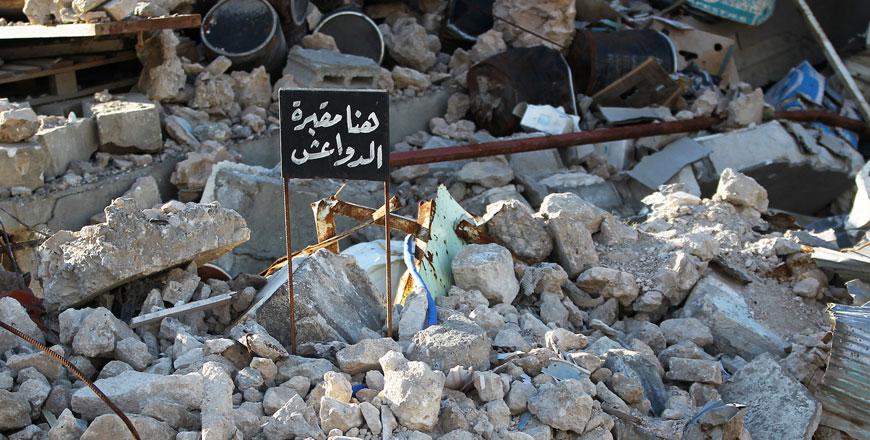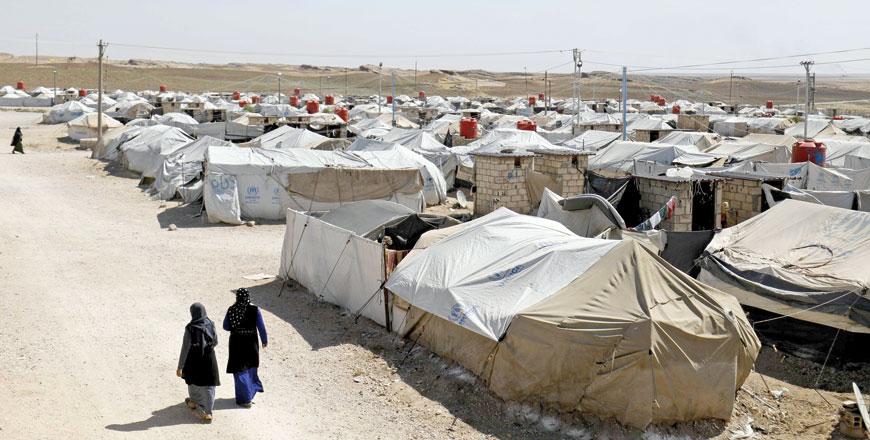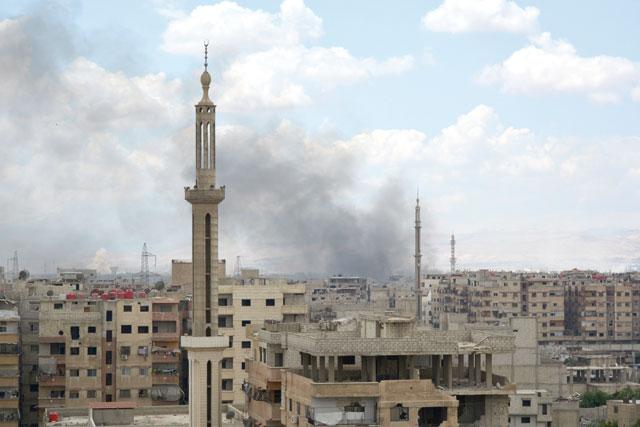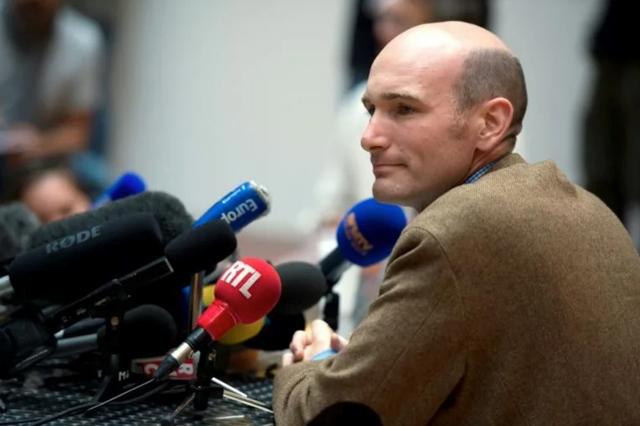You are here
Foreign fighters still joining Daesh in Syria — US general
By AFP - Oct 16,2018 - Last updated at Oct 16,2018

A sign that reads ‘Here is a cemetery of the Daesh’ sticks out from a pile of rubble in the old city of Mosul on January 9 (AFP photo)
WASHINGTON — Foreign fighters continue to flow into Syria to join the Daesh group despite its forces being largely decimated, Pentagon Joint Chiefs Chairman Joe Dunford said Tuesday.
Even though the militant group's territory has shrunk to a fraction of what it once was, new followers arrive, mostly over the Turkish border, at a rate of about 100 a month, Dunford said.
While that is down from a peak of about 1,500 a month three years ago, it shows that Daesh's ability to attract followers remains potent, he said.
"It's the flow of foreign fighters, the ability to move resources, and the ideology that allows these groups to operate," Dunford said, opening a conference on countering violent extremism.
Dunford also said that the inflow adds to the mounting problem of how to handle hundreds of captured foreign fighters whose home countries will not take them back.
He said the Syrian Democratic Forces are holding more than 700 Daesh fighters from around 40 countries.
"The progress of returning these fighters home for prosecution has been delayed by political considerations and inconsistent legal frameworks."
Britain, for example, has refused to repatriate the two remaining men of the Daesh unit dubbed the "Beatles", which kidnapped, tortured and beheaded a number of foreigners including journalists.
London stripped them of their citizenship and has said it does not want them back.
The United States has repatriated one of its Daesh foreign fighters to stand trial, but has not divulged the fate of any others thought to be held in Syria or Iraq.
Dunford said not dealing with the captured foreign fighters correctly will make it harder to eventually extinguish the attraction of the Daesh ideology.
A critical factor, he said, "is how we identify, prosecute, deradicalise and reintegrate foreign fighters".
"We need to find a way to address this challenge and prevent the detainees from becoming the leaders of tomorrow's extremist organisations," Dunford said.
Related Articles
QAMISHLI, Syria — Syria’s Kurds are holding hundreds of alleged foreign fighters from the Daesh group, but say they will not try them and ha
BEIRUT, Lebanon — The Syrian army bombarded a militant enclave in south Damascus on Monday, state television and a war monitor said, as Pres
ALEXANDRIA, United States — A French journalist held by the Daesh in Syria testified on Wednesday that he and other hostages were forced by


















